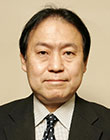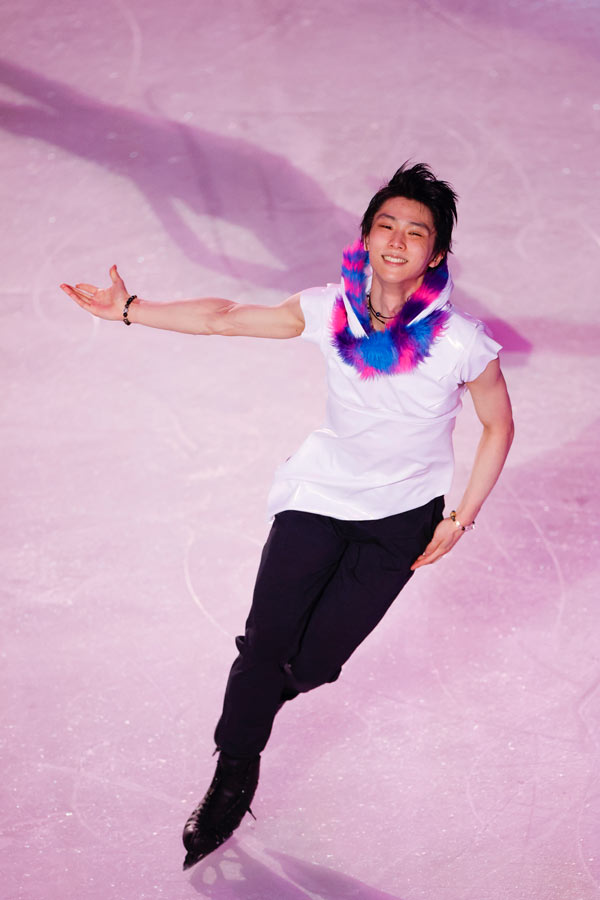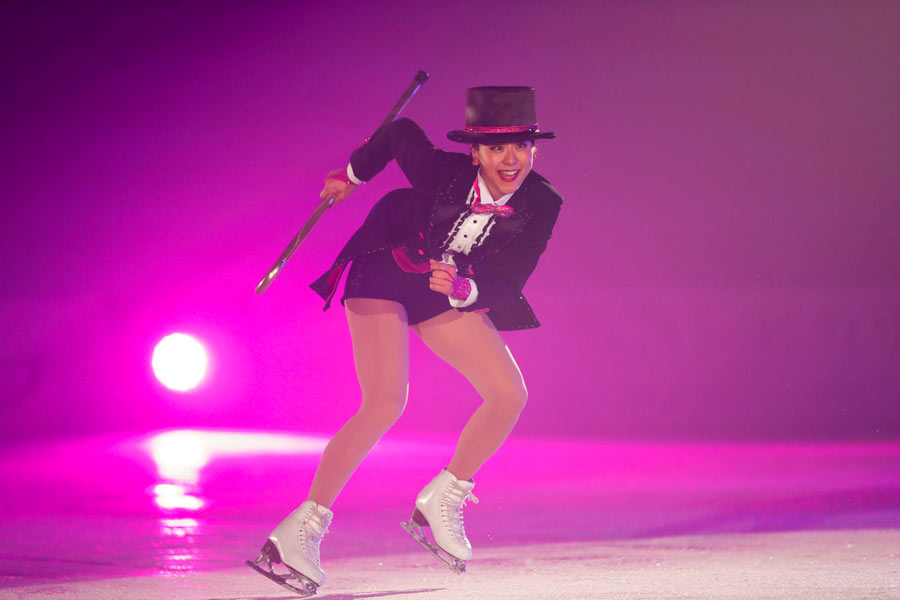The Greatest of All Time?
Yuzuru Hanyu’s magnetic popular appeal, skating ability, and record of achievement—along with his engaging communication skills—make him arguably the greatest male figure skater of all time.
Born in Sendai, he began figure skating at the age of 4 and competed internationally while still in elementary school, training under renowned coach Shoichiro Tsuzuki. Hanyu won the Junior Grand Prix of Figure Skating Final (JGPF) at the age of 14 and the World Junior Figure Skating Championships the following year. Although his practice rink was decimated in the Great East Japan Earthquake of March 11, 2011, he went on to win the gold medal at the Sochi Olympic Winter Games three years later, becoming the first Asian male to earn a figure-skating singles gold. He seriously injured his right ankle ligament in November 2017, but recovered in time to repeat as champion at PyeongChang three months later—the first male figure skater to win consecutive Olympic gold medals in 66 years. For this feat, he became, at age 23, the youngest-ever recipient of the Japanese government’s People’s Honor Award.
Hanyu’s achievements have not been limited to the Olympics, of course, winning multiple titles at the All Japan Figure Skating Championships, the Grand Prix of Figure Skating Final, and the World Championships. At his third Winter Games in Beijing, his blade was caught in a hole during the short program, which he finished eighth, but he rallied to rank third in the free program and fourth overall. He had set his sights on landing an unprecedented quadruple axel and made an attempt. It was judged to lack the required revolutions but was scored as an under-rotated quad axel—rather than being downgraded—for the first time in an official competition of the International Skating Union (ISU).
At a July 2022 press conference, he announced his retirement from competition and declared he would expand the scope of his activities to ice shows, adding that he would continue his attempts to land a quad axel as a professional. He produced his first solo ice show called Prologue in November that year, and another show titled Gift is being launched in February 2023 as an expression of gratitude to his supporters. Hanyu will surely remain in the public eye in the years ahead given his many talents.
Breaking New Ground
Just as groundbreaking for Japan’s figure staking was Mao Asada, the first woman to land three triple axels in one competition. She started skating at the age of 5 with her older sister and was a fan of Albertville silver medalist Midori Ito—the first women to land a triple axel. Asada became the first woman to perform a triple axel at the junior level during the JGPF, when she was just 14 years old. Her dominance of international competition made her a natural choice to participate in the 2006 Torino Games, but she was 87 days short of the ISU age limit and failed to qualify.
From 2008, she expanded her program under new coach Tatiana Tarasova and successfully landed triple axels during both the short and free programs at the 2010 Vancouver Games. The gold medal went to archrival Yuna Kim of South Korea, though, with a tearful Asada being awarded the silver. At Sochi four years later, failed jumps during the short program put her in sixteenth place, but she rebounded to finish third in the free program and sixth overall. She wept again after her performance, but this time, a beaming smile broke through her tears—a scene that touched many of her fans. She claimed her third World Championships title in March, after which she took a yearlong break from competition. She returned for the 2015–16 season but announced her retirement in April 2017.
She has remained actively engaged in the world of figure skating, however, embarking on a three-year Thanks Tour of 202 ice shows in 2018 to express gratitude to her fans and supporters. And in September 2022, she launched a series of 70 shows through March 2023 titled Beyond intended to showcase her “resolve to evolve”—as she wrote in the program notes—and to offer hope for a brighter, post-pandemic world.
I had a chance to speak with Asada in October 2022 during an interview for the SSF publication on the Sport History of Japan. She was just as cheerful and radiant as during her competitive days, but her words in detailing her future plans conveyed a strong sense of commitment. This is also evident in her current ice show, in which she again breaks new ground with a pair skating routine and a dynamic program integrating videos and 10 skaters.
Translated by the SSF from an article published in Japanese on February 21, 2022. Read part 2 of the article.

Shigeaki Matsubara
Shigeaki Matsubara was long in charge of planning and sales at sports photo agency Photo Kishimoto. After serving as Kishimoto’s executive director, he is now an adviser. He has covered many sports events, including the Olympic Games and the FIFA World Cup, and served as director general of the Japan Sports Arts Association, member of the expert committee on competition operations for the National Sports Festival, and member of the expert committee for the Nagano Olympics Culture Program. Currently serves as director and deputy secretary general of the Japan Sportsmen’s Club Foundation.



